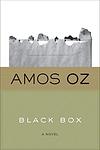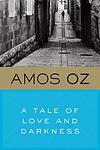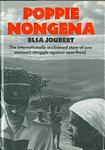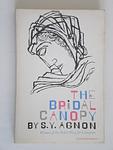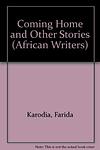The Greatest Israeli, South African "Fiction" Books Since 1900
Click to learn how this list is calculated.
This list represents a comprehensive and trusted collection of the greatest books. Developed through a specialized algorithm, it brings together 300 'best of' book lists to form a definitive guide to the world's most acclaimed books. For those interested in how these books are chosen, additional details can be found on the rankings page.
Genres
Countries
Date Range
Reading Statistics
Click the button below to see how many of these books you've read!
Download
If you're interested in downloading this list as a CSV file for use in a spreadsheet application, you can easily do so by clicking the button below. Please note that to ensure a manageable file size and faster download, the CSV will include details for only the first 500 books.
Download-
1. Disgrace by J M Coetzee
"Disgrace" is a novel that explores the life of a middle-aged professor in South Africa who is dismissed from his position after having an affair with a student. After losing his job, he moves to the countryside to live with his daughter, where they experience a violent attack that significantly alters their lives. The story delves into themes of post-apartheid South Africa, racial tension, sexual exploitation, and the struggle for personal redemption.
-
2. Cry, the Beloved Country by Alan Paton
"Cry, the Beloved Country" is a novel about a black Anglican priest from South Africa's rural Natal region who embarks on a journey to Johannesburg in search of his sister and son. The priest grapples with the racial injustice and social inequality of apartheid-era South Africa, while his son becomes involved in political activism and is wrongfully accused of a crime. The novel explores themes of love, fear, and social justice, while highlighting the destructive effects of apartheid on the human spirit and the South African landscape.
-
3. Waiting for the Barbarians by J M Coetzee
The novel is set in a small frontier town of an unnamed empire, where the magistrate lives a life of civil service and relative peace. His world is disrupted when the Empire declares a state of emergency due to rumors of barbarian uprising. The magistrate becomes a critic of the Empire's brutal and inhumane methods of dealing with the perceived threat, which leads to his arrest and torture. As he tries to understand his role in the vast political machinery, he also grapples with questions of power, justice, and humanity.
-
4. Life & Times of Michael K by J M Coetzee
Set in South Africa during a civil war, the novel follows the journey of Michael K, a simple gardener with a cleft lip. When his mother falls ill, he attempts to take her back to her rural birthplace. After she dies en route, Michael continues the journey alone, struggling to survive in a war-torn landscape, while also being caught up in the bureaucratic red tape of the dystopian society. The story explores themes of freedom, survival, and the human spirit's resilience against adversity.
-
5. Burger's Daughter by Nadine Gordimer
"Burger's Daughter" is a novel centered around Rosa Burger, a white woman in South Africa during the apartheid era. The narrative delves into Rosa's life and struggle to find her identity, while also dealing with the legacy of her parents who were anti-apartheid activists. This story provides a deep look into the political and social climate of South Africa during a time of racial segregation and oppression.
-
6. July's People by Nadine Gordimer
"July's People" is a novel set in a hypothetical future where South Africa's apartheid system has collapsed and the nation is embroiled in a brutal civil war. The story follows a liberal white family who, fleeing the violence, are taken in by their black servant, July, in his rural village. The book explores the power dynamics and complexities of their relationship, as they navigate this new reality where traditional roles are reversed, and grapple with issues of race, class, and privilege.
-
7. A Dry White Season by Andre Brink
Set in apartheid-era South Africa, "A Dry White Season" follows the story of Ben Du Toit, a white schoolteacher who becomes involved in the fight against the system after his gardener's son is brutally beaten by the police. As he delves deeper into his quest for justice, he becomes increasingly isolated from his community and his family, and ultimately pays the highest price for his convictions. The novel is a powerful exploration of the devastating effects of racial injustice and the courage it takes to stand against it.
-
8. Chaka by Thomas Mofolo
This novel explores the life of Chaka, a legendary leader in Southern Africa who turns into a tyrant due to his insatiable thirst for power. The narrative focuses on his rise to power, his strategic military genius which leads to the expansion of the Zulu Empire, and his eventual downfall due to his increasing brutality and madness. The story is a blend of historical fact and folklore, creating a complex portrait of a man driven by ambition and consumed by his own power.
-
9. Dusklands by J M Coetzee
"Dusklands" is a novel divided into two distinct parts, each examining the theme of imperialism. The first part follows a psychologically unstable American government researcher during the Vietnam War, who is tasked with developing propaganda to justify the conflict. The second part is a historical narrative set in the 18th century, exploring the violent colonization of South Africa by the Dutch. The stories parallel each other, highlighting the destructive nature of imperialism and the psychological effects it has on individuals.
-
10. In the Heart of the Country by J M Coetzee
Set in South Africa, this novel tells the story of a woman living on a remote farm who is isolated not only geographically but also emotionally and psychologically. After her father marries his young mistress, the protagonist's life spirals into madness and tragedy. The narrative explores themes of loneliness, power dynamics, and the harsh realities of life in apartheid-era South Africa, all presented through the protagonist's fragmented and unreliable perspective.
-
11. Ancestral Voices by Etienne van Heerden
"Ancestral Voices" is a haunting novel set in South Africa during the apartheid era. The story follows a young boy who grows up in a small rural town, navigating a complex web of familial relationships and secrets. As he matures, he becomes increasingly aware of the racial and social injustices that surround him. The book explores themes of identity, heritage, and the harsh realities of life under apartheid, all weaved together with a deep sense of the mystical and the supernatural.
-
12. Black Box by Amos Oz
"Black Box" is a novel that explores the complex dynamics of a broken family. The story revolves around a divorced couple who are forced to reconnect after their son begins to display troubling behavior. The husband, a stern and disciplined judge, and the wife, a free-spirited Holocaust survivor, must navigate their personal differences, past hurts, and current relationships to address their son's issues. The book is written in the form of letters, revealing the characters' inner thoughts and struggles, making it a profound exploration of human relationships, regret, and reconciliation.
-
13. The Conservationist by Nadine Gordimer
The book is a character-driven novel set in South Africa during the apartheid era. The protagonist is a wealthy, white industrialist who buys a farm with the intention of using it as a weekend retreat. However, the farm proves to be unprofitable and difficult to manage, and the protagonist's life becomes intertwined with the lives of the black people who live and work on the land. The narrative explores themes of ownership, identity, and the struggle for meaning in a racially divided society.
-
14. A Tale of Love and Darkness by Amos Oz
This book is a poignant memoir that explores the complexities of love, darkness, loss, and the endurance of the human spirit. Set against the backdrop of the end of the British Mandate for Palestine and the early years of the State of Israel, the author recounts his childhood in Jerusalem, the suicide of his mother, and his path to becoming a writer. The narrative is both a personal account and a portrait of a society in turmoil, providing a profound exploration of the individual and collective psyche.
-
15. Inkinnsela Yase Mgungundlovu by Sibusiso Nyembezi
"Inkinnsela Yase Mgungundlovu" is a captivating novel that delves into the lives of the people living in the village of Mgungundlovu. Set during the time of the Zulu kingdom, the story follows the struggles and triumphs of various characters as they navigate through love, friendship, and societal expectations. With rich cultural descriptions and vivid storytelling, the book offers a glimpse into the complexities of life in rural South Africa, highlighting themes of tradition, identity, and the pursuit of dreams.
-
16. The Blood Knot by Athol Fugard
"The Blood Knot" is a powerful play that explores the complex relationship between two half-brothers, Morris and Zachariah, who live together in a small shack in apartheid-era South Africa. Morris, who is light-skinned, dreams of escaping their impoverished life, while Zachariah, who is dark-skinned, is content with their routine. As tensions rise and their differences become more apparent, the brothers navigate themes of identity, race, and the limitations imposed by society, ultimately leading to a shocking and heartbreaking climax.
-
17. Ingqumbo Yeminyanya by Archibald Campbell Jordan
"Ingqumbo Yeminyanya" is a powerful and thought-provoking novel set in South Africa during the early 20th century. It explores the complexities of race, identity, and the struggle for freedom through the lives of its diverse characters. With rich storytelling and vivid descriptions, the book delves into the harsh realities of apartheid and the profound impact it has on individuals and communities. Through its compelling narrative, the novel challenges readers to confront the deep-rooted prejudices and injustices that plagued the nation, while also highlighting the strength and resilience of the human spirit in the face of adversity.
-
18. Die Swerdjare Van Poppie Nongena by Elsa Joubert
"Die Swerdjare Van Poppie Nongena" is a powerful and poignant novel that tells the story of Poppie, a black South African woman, during the apartheid era. Set in the 1960s, Poppie faces immense challenges as she navigates the oppressive system that separates her from her family and forces her to endure constant discrimination and hardship. Through Poppie's experiences, the book explores themes of resilience, love, and the human spirit's ability to triumph in the face of adversity.
-
19. The Bridal Canopy by Shmuel Yosef Agnon
The novel is a rich tapestry of 19th-century Jewish life in Eastern Europe, following the picaresque journey of Reb Yudel, a poor, pious Jew, as he travels through Galician villages in search of suitable husbands for his three daughters. Along the way, he encounters a vivid cast of characters and experiences a series of adventures that reveal the customs, struggles, and faith of the Jewish communities of that era. The narrative, imbued with religious and folkloric elements, offers a blend of humor, irony, and profound insight into human nature and divine providence, painting a nostalgic picture of a bygone world.
-
20. The Steam Pig by James McClure
In this gripping crime novel, a tenacious detective navigates the complex social and racial landscape of 1970s South Africa to solve a perplexing murder case. The story begins when a body is discovered inside a clay pig sculpture, leading the detective on a trail through the seedy underbelly of the city. As he delves deeper into the investigation, he encounters a diverse cast of characters and uncovers a web of deceit and corruption. The detective's sharp instincts and unwavering commitment to justice drive him to unravel the mystery, despite the challenges posed by the apartheid-era setting.
-
21. Fiela's Child by Dalene Matthee
The book is a poignant tale set in 19th-century South Africa, where a young white boy, believed to be lost by his biological family, is found and raised by Fiela, a compassionate and strong-willed woman of the Khoikhoi community. The story unfolds as the boy, named Benjamin, grows up with a deep sense of belonging in Fiela's family, only to have his identity and future thrown into turmoil when government officials, enforcing racial classifications of the time, remove him from his home. He is then forced to live with a destitute white family in the dense Knysna Forest, leading to a profound exploration of identity, race, and the meaning of family, as both Fiela and Benjamin struggle to reclaim their lives and assert their rightful place in a society governed by strict racial divides.
-
22. Another Country by Karel Schoeman
"Another Country" is a historical novel set in 19th century South Africa, following the life of an Irish woman who immigrates to the country. The narrative explores her experiences and struggles as she adapts to the harsh realities of a new land, while also providing a vivid portrayal of the racial, political, and social tensions of the era. The book offers a deep insight into the complexities of colonialism and the formation of modern South Africa.
-
23. Between Two Worlds by Miriam Tlali
"Between Two Worlds" is a compelling narrative that explores the harsh realities of apartheid in South Africa through the eyes of its protagonist, Muriel. The story delves into Muriel's life as she navigates the oppressive societal structures that enforce racial segregation and discrimination. Working in a Johannesburg store, she encounters a microcosm of apartheid's broader societal impacts, including the complexities of interracial relationships and the struggle for dignity and identity amidst pervasive racism. The novel poignantly captures the personal and political conflicts faced by those trapped between the traditional and the modern, the rural and the urban, in a time of profound injustice.
-
24. Coming Home And Other Stories by Farida Karodia
"Coming Home And Other Stories" is a collection of short stories that delve into the lives of individuals grappling with the complexities of identity, displacement, and belonging, primarily within the context of South African society. The narratives explore themes of apartheid, racial discrimination, and the struggle for liberation, as well as the personal challenges of family dynamics, love, and loss. Through a variety of characters and settings, the stories offer a poignant reflection on the human condition and the search for home, both in a literal and metaphorical sense, highlighting the resilience of the spirit amidst social and political turmoil.
-
25. Twilight And Other Stories by Shulamith Hareven
"Twilight and Other Stories" is a collection of evocative short stories that delve into the complexities of human experience, exploring themes of love, loss, identity, and the passage of time. The narratives, set against diverse backdrops, from ancient times to modern-day Israel, weave together a tapestry of characters each confronting their own moral dilemmas and emotional struggles. With a poetic and introspective style, the stories in this anthology invite readers to reflect on the subtle shades of humanity and the profound impact of seemingly ordinary moments.
Reading Statistics
Click the button below to see how many of these books you've read!
Download
If you're interested in downloading this list as a CSV file for use in a spreadsheet application, you can easily do so by clicking the button below. Please note that to ensure a manageable file size and faster download, the CSV will include details for only the first 500 books.
Download










